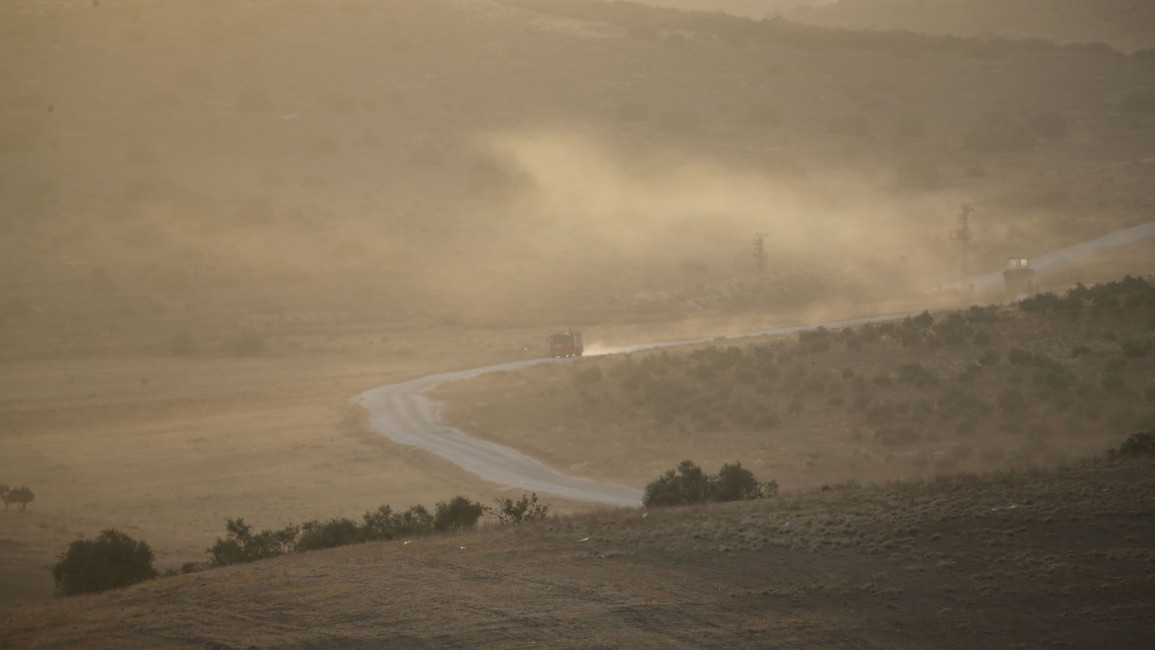Syrian regime forces reach rebel-held air base in Idlib
Since the launch of the government offensive in late October, regime forces have had their sights set on recapturing the Abu Zuhour air base, captured by the rebels in 2015 after a three year siege.
The operation also hopes to secure the road linking the country's capital, Damascus, with the largest city, Aleppo in the north.
The state-controlled Syrian Central Military Media alleged that troops are fighting al-Qaeda linked militants and other insurgents in areas near Abu Zuhour, adding that troops are two kilometres (1.2 miles) away from the base.
The government offensive has displaced tens of thousands of people, who have fled toward areas close to the Turkish border.
Tens of thousands have been displaced by the regime offensive, fleeing to the northwestern province, Idlib, the largest remaining rebel-held territory in Syria.
Turkey, a supporter of the rebels, has deployed military observers in Idlib as part of a de-escalation deal with Iran and Russia but that has not stopped fighting on the ground or Russian airstrikes.
Idlib province is one of four regions of Syria which are supposed to be safe areas under the deal agreed by Russia, fellow regime ally Iran, and Turkey in May.
In the past two months a Russian air offensive has helped capture 80 towns and villages in the nearby Hama province and breached Idlib for the first time since mid-2015.
Syrian regime forces captured 14 villages on Monday as part of an offensive on the largest rebel-held enclave.
Zeid Ra'ad Al Hussein, the UN human rights chief voiced his "great concern" over the situation in Idlib, home to more than 2.6 million Syrians, including some one million displaced who fled fighting elsewhere in the country.
Crippling siege of eastern Ghouta
Al Hussein also condemned the upsurge in civilian casualties in eastern Ghouta, the eastern suburbs of Damascus, stressing the international requirement for parties to separate between military targets and civilians.
While the Assad regime backed by Russia has retaken more than half of the country with a string of victories against rebels, the battle-scarred Damascus suburb of Eastern Ghouta remains a thorn in the regime's side.
Eastern Ghouta is one of the last remaining opposition strongholds in Syria.
The region has been the target of devastating airstrikes and a crippling siege by the regime of Syrian President Bashar al-Assad.
Amnesty International, among other rights groups have accused the Assad regime of using illegal cluster munitions on the besieged enclave.
Around 400,000 people are believed to be trapped in the besieged area, with the UN having previously appealed for the Assad regime to allow the evacuation of around 500 priority patients.
Rights groups and the UN have criticised "reconciliation" agreements that see civilians evacuated following sieges and bombardment apparently aimed at forcing civilians to leave their homes.
Such deals have seen rebels transferred to Idlib in the north, the only province in Syria fully outside regime control.
"In Idlib, ground attacks and airstrikes have escalated as a rapidly-moving government offensive gains momentum, jeopardising the safety of hundreds of thousands of civilians," said Al Hussein.
He added that at least 85 civilians, including 21 women and 30 children, have been killed and at least 183 injured in eastern Ghouta since December 31.
The Syrian conflict began when the Baath regime, in power since 1963 and led by Assad, responded with military force to peaceful protests demanding democratic reforms during the Arab Spring wave of uprisings, triggering an armed rebellion fuelled by mass defections from the Syrian army.
The brutal tactics pursued mainly by the regime, which have included the use of chemical weapons, sieges, mass executions and torture against civilians have led to war crimes investigations.



